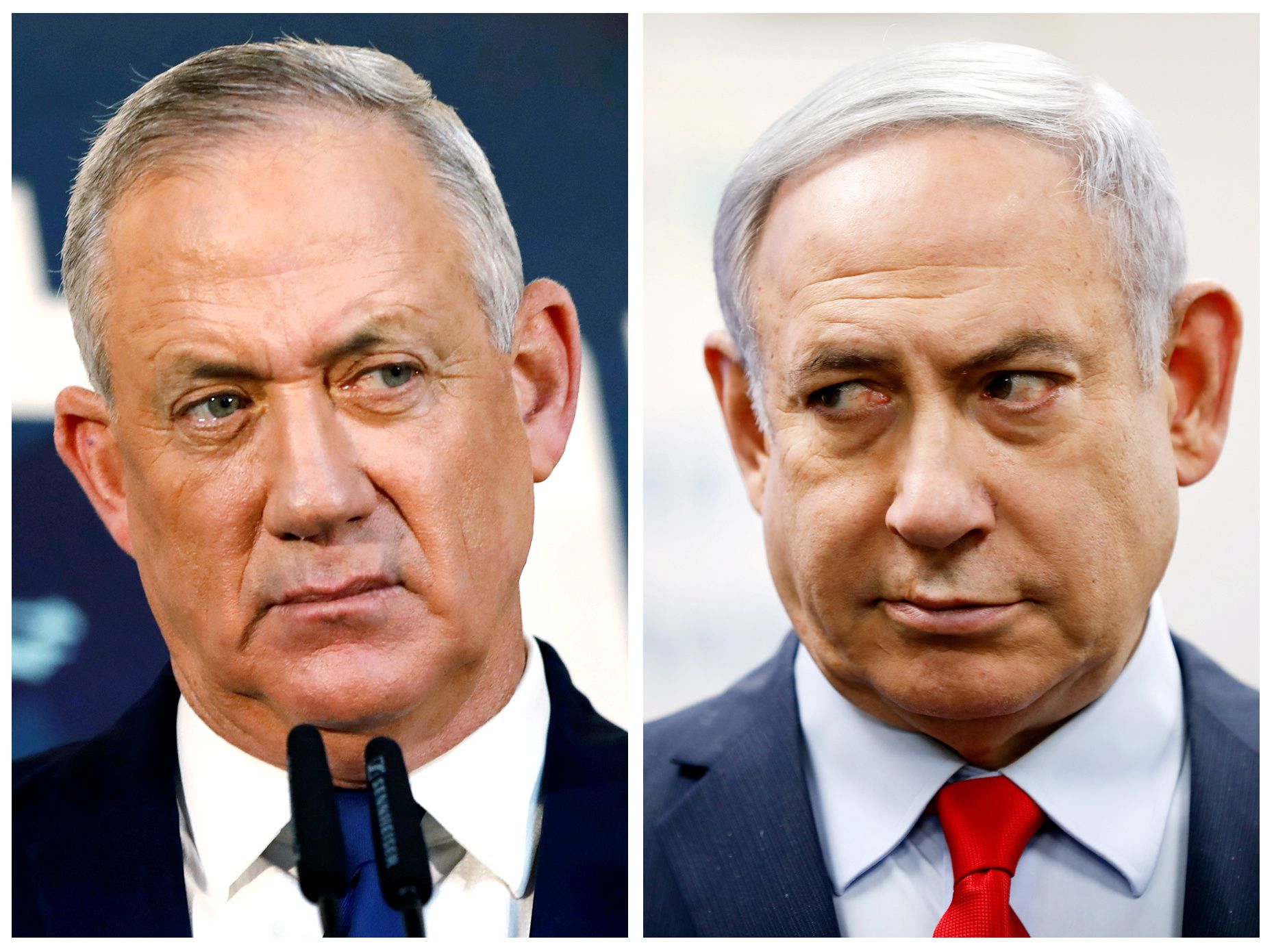Non-coronavirus news: Israel’s deadlock, Sanders' future, and Putin's forever plan
Israel's deepening political woes: A week after Israel's parliamentary election – its third in less than a year – neither the incumbent prime minister Benjamin Netanyahu, nor his rival Benny Gantz of the Blue and White party, appear well positioned to form a coalition government. Earlier this week, it seemed that Gantz might just be able to form a minority government backed by the Joint List of Arab parties, but this plan fell through when two Blue and White members refused to sit in a government backed by Arabs. Israel's deepening political instability comes just as Netanyahu is set to appear in a Jerusalem court to face three corruption charges on March 17. A series of elections and a caretaker government have meant that for more than a year there's been no economic policy in place to stem the country's growing budget deficit. Now, as the coronavirus outbreak presents major challenges for Israel's economy, the political wrangling is delaying the passage of a much-needed state budget.
Is it over for Bernie Sanders? Bernie Sanders entered yesterday's primary elections in Michigan, Missouri, Mississippi, Washington, Idaho, and North Dakota fully aware that he needed a good result in most of these states in order to keep his presidential campaign alive. That's because his rival, former Vice President Joe Biden, has built a fairly strong delegate lead and the older and more heavily African-American demographics of the states that appear next on the primary calendar favor Biden. Sanders came up short. When the votes from yesterday's contests are fully counted and the delegates allotted, it will be clear that Biden has become the overwhelming favorite to capture the Democratic Party's presidential nomination and to face off with Donald Trump in the November election. Sanders may remain in the race a few more weeks, but this contest is effectively over.
Putin's forever plan: After 20 years in power, Russian President Vladimir Putin just can't get enough. Last month, he proposed constitutional amendments that would create various indirect ways for him to remain Russian-in-Chief even after term limits kick in at the end of his current term in 2024. But yesterday he pulled out all the stops: After a little-known lawmaker proposed resetting the clock on those limits, beginning in 2024, Putin theatrically swept into the chamber to deliver a speech in which he graciously accepted the possibility of serving two more six-year terms (until 2036), pending approval from the constitutional court. Spoiler: the constitutional court will approve. Credible polls tell us that Putin is genuinely popular, and many Russians, particularly businesspeople and politicians, prefer the imperfect system they know to the prospect of a struggle for power when Putin leaves the scene. But there's a big difference between "approval of Putin" and "approval of 16 more years of Putin." And the last time he found a gimmicky way to return to power (from 2008-2012 he served as prime minister to evade presidential term limits) it provoked massive street protests.
What We're Ignoring
A 2032 Olympics bid for an imaginary city: Indonesian President Joko Widodo, also known as Jokowi, wants his country to host the summer Olympics in a dozen years' time. After filing an initial bid last month to host the summer games in Jakarta, Jokowi is reportedly considering changing the venue to Indonesia's new, high-tech capital city on the island of Borneo. There is a slight catch: the city doesn't exist yet. Construction won't begin until next year. We feel comfortable ignoring this story until the city at least has a name.
